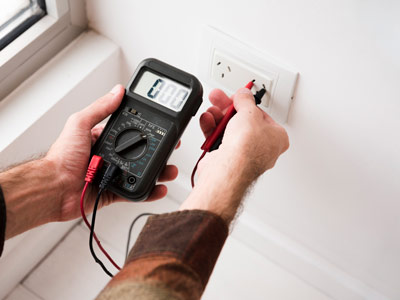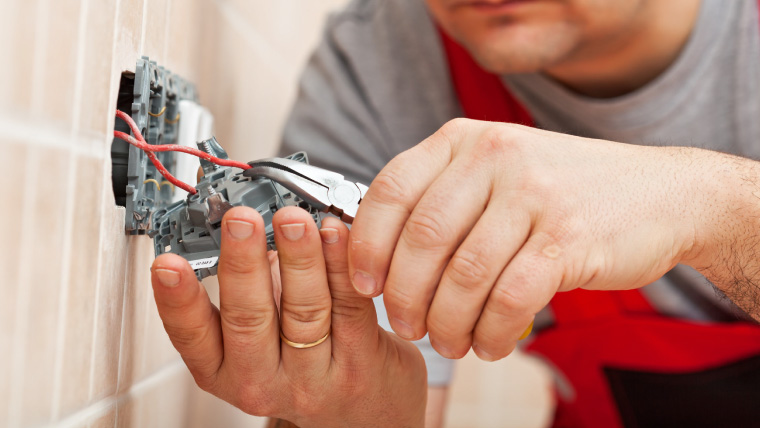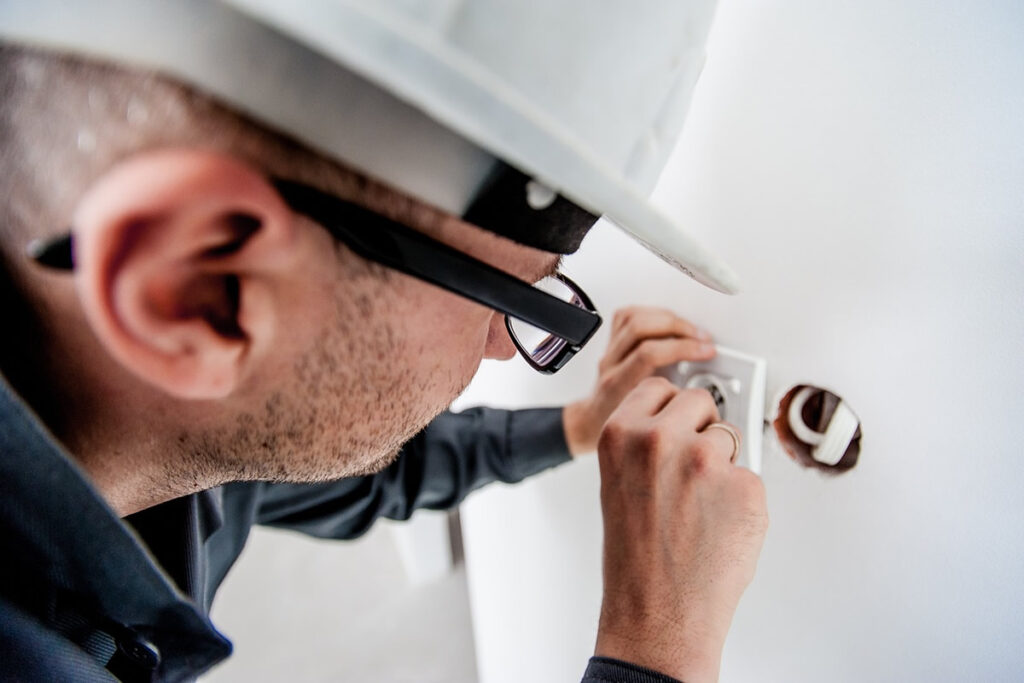Home Renovation Electrical Upgrades
Whether you’re remodeling your current home or renovating an older home, it may be worth your while to upgrade your existing electrical system to meet all recommended guidelines and current safety standards. Not only are electrical upgrades a wise investment because they help increase the resale value of your property; certain lifestyle changes, like a new baby or having elderly in-laws in the home, could weigh heavily on your decision.
Most homeowners are unaware, but every three years The National Electrical Code (NEC) is updated to include revised guidelines for your property’s electrical requirements. While these aren’t federally mandated laws, these recommendations are considered the gold standard for the safe and proper installation of updated electrical systems, wiring, circuit breakers, and a variety of outlets.
A home fraught with faulty wiring is a major safety hazard and greatly increases the risk of electrical fires. Additionally, old wiring can lead to electrical shock if anyone comes in contact with frayed or exposed wires. Another annoyance that comes along with an outdated electrical system is power surges, brown and blackouts and appliances constantly being tripped.
Outlets
If you live in an older home, chances are that you may have outdated outlets that are lacking proper ground wire. Upgrading older two-prong outlets when you’re renovating your home can help prevent electrical shock, fires, and surges.
Another aspect to take into consideration is the size of your family. Take into consideration your electrical needs ten years from now. If you intend on growing your family, your electrical needs may change along with it. A home renovation or remodel is an excellent time to install additional outlets in each room of your home
Some rooms you may want to upgrade and add outlets to are:
Home Offices: With a sizable portion of the nation’s workforce shifting to remote positions, the home office is more popular than ever before. Another thing that has changed is the demands of newer technology like laptops, printers, and desktop computers. Additional outlets in your home office will help prevent overloading power strips and using extension cords, which can both become safety hazards if relied on too heavily.
Children’s’ Rooms: When you think about how much today’s youth relies on technology, it can make most adults shudder. Video games, newer entertainment systems, and even enhanced lighting systems all require more outlet space in the room.
Outdoor Spaces, Patios & Decks: This is especially important. For outdoor spaces, you’ll want to add GFCI outlets to any outdoor areas to ensure that you are safe in the event your outlets come in contact with water or humidity. GFCI is short for ‘Ground Fault Circuit Interrupters. These intuitive outlets are designed to instantaneously turn the electricity off if any plugged-in item comes in contact with water or other types of moisture. It is a must for outdoor areas.
Kitchens: The kitchen is another area of the home that boasts large and demanding appliances. The same rule of thumb as outdoor spaces applies here. Since the kitchen is a high traffic area where water and moisture are in abundance, you’ll want to install more GFCI outlets to handle the load of large-scale appliances. like refrigerators, toaster ovens, ice makers, and microwaves.
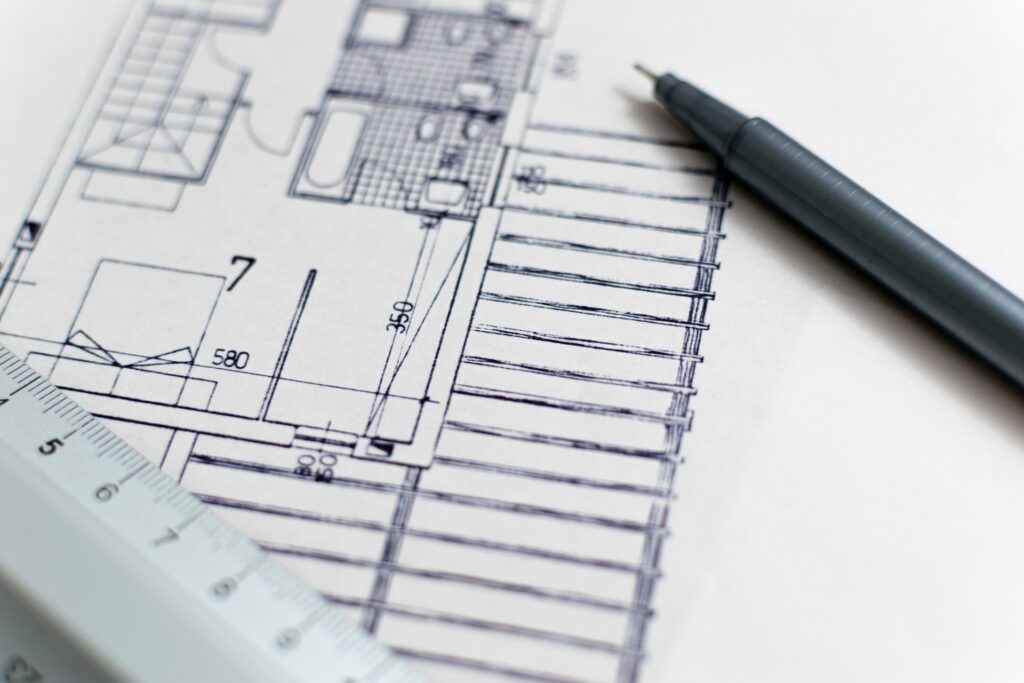
MUST-HAVE ELECTRICAL UPGRADES FOR YOUR HOME
THESE NEW GADGETS AND INGENIOUS DESIGN IDEAS WILL LEND YOUR HOME A SENSE OF CONVENIENCE, STYLE, AND MODERN FUNCTIONALITY. WHETHER YOU’RE DRAWING UP PLANS FOR A NEW HOUSE, OR UPGRADING YOUR CURRENT HOME, MAKE SURE YOU’RE GETTING THE MOST OUT OF YOUR WIRING SYSTEM
Outlets with USB ports for charging your devices.
This is an inexpensive, but incredibly useful modification to make charging easier. Throw out all your USB adapters and charge your phone directly from the outlet. Better yet, install USB outlets in a drawer or cubby so you can charge all your devices completely out of the way.
Vacuum dustpan.
Perfect for quick clean-up of non-carpeted floors. Don’t bother digging out your whole vacuum or bending over with a real dustpan; just suck up dust and dirt straight into your central vac system instead. The kitchen is a great place for this handy device.
LED lights.
LED lighting is becoming more and more popular. Why? LEDs are energy efficient. This means a few things. First, they provide higher quality lighting. Second, they’re proven to last longer. Third, they’re more environmentally friendly. And finally, they will save you money on your power bill.
Smart wiring in the bedroom.
Wire your bedroom lights to your bedside so you can switch them on and off without getting out of bed. For added security and peace of mind, wire your outdoor floodlights to the bedside as well. This way, if you hear something outside in the middle of the night, you can light up your yard immediately.
Recessed rope lighting.
Install rope lighting to your home for a modern design effect. Place behind shelves, under or above cabinets, under stairs, or over crown molding for subtle impact. Outdoors, rope lighting can be used to line garden beds or illuminate rock walls.
A distributed audio system.
Wire your speaker system throughout your house so you can listen to music in any room, at any time. Speakers are well hidden; they’re installed either in-wall or in-ceiling. Individual controls allow you to change the volume in each room. Some systems also include intercoms for easy communication across your home.
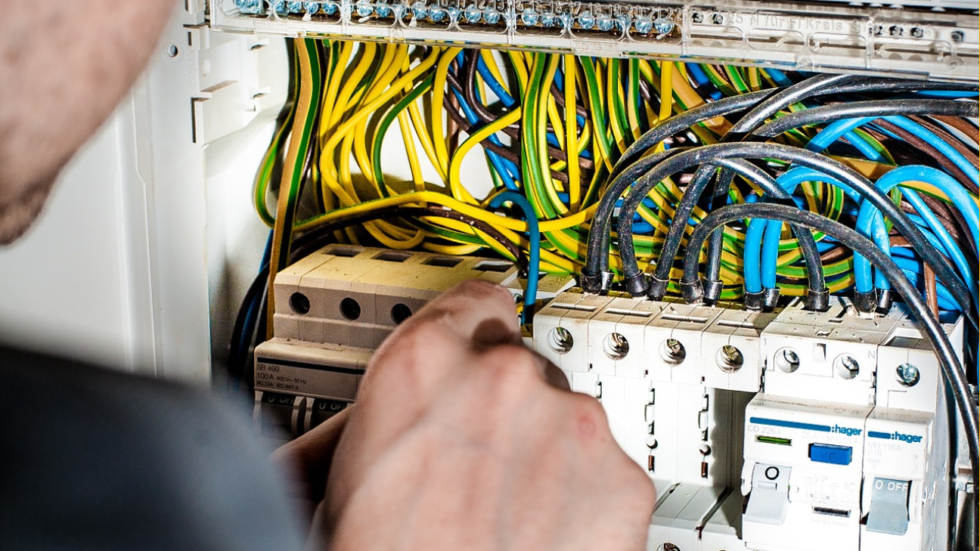
Electrical Upgrades You Need to Consider During Home Renovations
Did you know buildings consume over 40% of the primary energy and 70% of the electricity produced in the U.S. annually? Performing an upgrade to your electrical wiring during renovations may help you cut on your expensive power bills. Besides, residential electrical services can help you comply with local and national electric codes.
Important Electrical Upgrades for Your Home
A home with faulty electrical connections is a major safety hazard. Electrical shocks and electrocutions can occur if you come into contact with exposed wiring. Here are some upgrades during your renovations that can help bring your building up to code.
Upgrading Electrical Panel
85% of homes in the US are more than four decades old. Most older homes were designed to use about 30 to 50 amps of power. Modern homes use four to five times as much power. Emergency electrical services can install a new power panel that meets the demands of contemporary life. You can eliminate the frequent light flickering and circuit breaker trips within your home.
Rework Your Electrical Wiring
Home renovations may involve tearing down of walls that may require rewiring of your home. You may take the opportunity to have electrical contractors, to conduct a full inspection service on your wiring system. Older homes tend to have add-on circuits that increase the risk of electrical faults. Work with emergency electrical services to install new wires, switches, and circuits and keep your home safe.
Install GFCIs
Ground Fault Circuit Interrupters (GFCIs) are devices that switch off the power once an appliance comes into contact with moisture. The National Electrical Code recommends installing GFCIs in kitchens, bathrooms, basement, and outdoors and any other appliances stationed near water. Installation may require the skills of an expert electrical contractor.
Set Up a Charging Station
In today’s digital age, almost everyone owns at least one hand-held device that requires frequent charging. Demand for charging ports may lead to small ‘fights’ with an octopus on power bars plugged all over the home. A designated charging station can help keep all devices in one area, freeing other ports for other appliances.

Electrical Upgrades to Bring Your Home to Today’s Standards
If you live in an older house, your electrical system may be unable to handle the modern appliances and hi-tech equipment commonly used today. Your electrics could also have deteriorated over time, without you realising.
The power needs of modern homes have changed significantly over the years, and so have electrical safety codes and regulations. For instance, electrical systems in homes built before 1980 may be capable of providing power to outlets, but inadequate for energy-efficient appliances and state-of-the-art electronics.
Old-style fuse boxes can present another problem because they can’t cope with modern energy loads. And a lack of ground fault circuit interrupters can pop your fuses when trying to run more than one appliance at a time. Your home may also have no hardwired smoke alarms, required by code in newer properties.
Smoke Alarms
Most fire-related deaths are a result of breathing in smoke. This makes smoke alarms a crucial but sometimes overlooked piece of equipment to protect your family – and your property. Most house fire fatalities occur during the night, when you may not be alerted by the smell of smoke as you sleep. Smoke detectors give you vital time to escape a fire. The BC Fire Code requires every home to have working smoke alarms.
Battery-operated smoke alarms are allowed in older homes, but you may prefer a smoke detection system that’s hardwired into your house’s electrical system. This eliminates the possibility of forgetting to check batteries regularly.
Electrical Upgrades Everyone’s Asking for Right Now, According to Pros
There are endless things to consider when building or renovating a home. You’re thinking about budget, sustainability, practicality, and of course, how to make sure it feels like you. But have you given much thought to your electrical upgrades? I’ve always taken the good ol’ light-switch-on-the-wall for granted, but in 2020, electricians can do so much more than that.
Smart switches
Every electrician I talked to said smart switches are the number one request right now. these are replacing traditional lighting timers—such as those on flood lights—for outdoor lighting. The smart switch allows more flexibility than a simple timer, and means that you can control the lighting from your phone even if you forget to set it up before you leave home. It’s not only convenient, but also adds a sense of security for people.
Remote-controlled ceiling fans
“A lot of fans now come with remotes that let you control the light and the fan,” He says this is different than before because they used to be wired separately, but now you don’t even have to get out of bed to turn off the light and turn on the fan
Remote-controlled shades
many customers are requesting electric shades that are controlled from a remote, as well. That’s especially handy for tall windows that would require a ladder to reach.
Outlets directly behind wall-mounted TVs or projectors
As far as creative electrical outlet placement, Ilin says they now usually fix outlets directly behind wall-mounted TVs or projectors so that you don’t have to worry about unsightly wires trailing down your wall.
